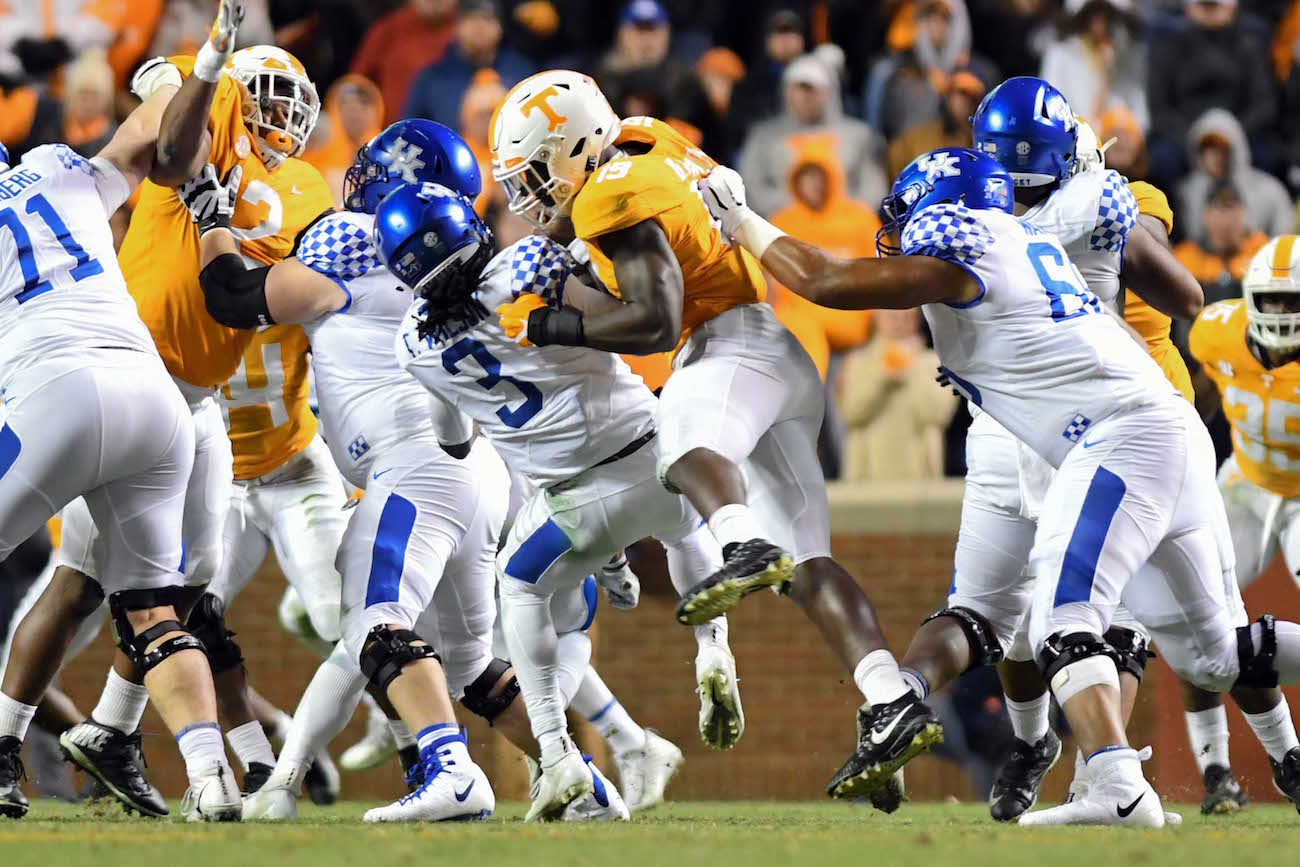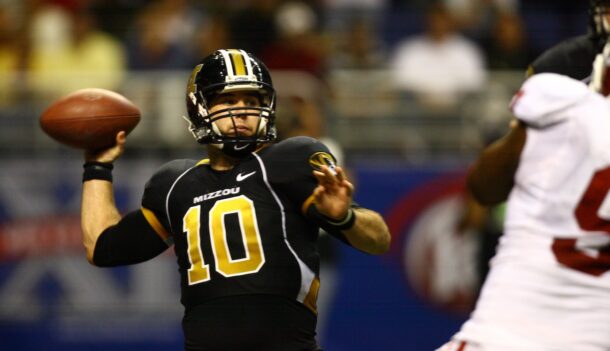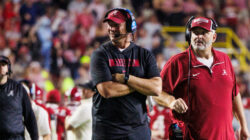
On the morning of Nov. 3, Kentucky might have been the toast of college football. The Wildcats were 7-1, prepared to host Georgia for the SEC East title, in the CFP top 10 and gaining kudos throughout the SEC and national media for an impressive season. They were led by SEC player of the year candidates on both sides of the ball.
Now, the Wildcats have lost their past two games by 17 points each and are limping down the stretch of their season after an embarrassing loss at Tennessee.
All of which raises the question of what exactly Kentucky is missing. Why have the Wildcats fallen so far and fast from dream season to seemingly destined to grind out 10-7 games against MTSU and Louisville in the season’s last two weeks. Here are a few guesses as to what the ‘Cats lack that legitimate contenders have.
1. Solid QB play
JUCO passer Terry Wilson has struggled throughout the 2018 season to grasp control of Kentucky’s offense. Part of Wilson’s problem has come on the ground. In Kentucky’s seven wins, Wilson averages 57 yards per game rushing. In Kentucky’s three losses, he has 10 rushing yards total. (Granted, sacks count against his rushing.) Given the inconsistency of Wilson’s passing skills (Kentucky is solidly in the cellar in SEC passing yardage stats), the ground game was one way he made a difference … but that’s ending quickly.
Meanwhile, Wilson has had moments when he was a difference-making QB — he passed for 151 yards and two scores and rushed for another 105 yards and a touchdown in UK’s skid-busting win in The Swamp, and he was smooth on the game-winning drive at Missouri. But for all of those moments, at the end of the day, his 6.4 yards per passing attempt indicates an offense that has zero big-play ability through the air. Wilson ranks last among SEC in completions covering 20+ yards (17) and 30+ yards (4).
Sophomore Gunnar Hoak has had little opportunity to grab the job, and other than a stint against Murray State, hasn’t impressed when he has gotten snaps. Moving forward, Kentucky has to develop a decent SEC quarterback.
2. Consistent receiving threats
In defense of Wilson, when Kentucky’s line has forced him to scramble for his life, his receivers haven’t done much to help. Kentucky’s passing offense is basically WR Lynn Bowden, who is a 5-11 shifty type who isn’t a deep ball threat. Kentucky has two players who have caught more than 17 passes (the other being TE C.J. Conrad, with 23 grabs), and the second-leading Wildcat in receiving yardage is former walk-on David Bouvier with 189. Whether it’s poor blocking for Benny Snell on the corner or dropping passes, many allegedly talented UK receivers haven’t lived up to expectations.
3. Pass blocking
Given how poor Kentucky’s passing game is, Wilson’s mobility, and the offensive line’s success at paving running lanes for Benny Snell (particularly early in the season), Kentucky’s pass blocking woes have been surprising. The Wildcats have allowed 23 sacks, which makes a terrible ratio with their 243 pass attempts. With a happy-footed QB and a receiving corps that might not catch a cold, Kentucky has to block better.
4. Big plays from the defensive line
Granted, Matt House and Mark Stoops’ defensive scheme uses its front three players to engage the offensive line and allow the linebackers to make plays. But that said, defensive lineman Phil Hoskins leads the defensive line with 18 tackles. Kentucky has only 5.5 sacks from its defensive linemen, and the absence of big plays from the front three is grinding on Kentucky’s ‘backers and secondary down the season’s stretch.
5. Special play from special teams
Kentucky is 5-for-11 on field goals. Senior Miles Butler missed a 42-yard kick in overtime at Texas A&M, and true freshman Chance Poore had a 30-yard try blocked in Knoxville. Neither has been reliable. Punter Max Duffy had a good start, but has struggled with placement and out-punting his coverage at times against better competition. Kentucky is still mostly using former walk-on David Bouvier to return punts, despite the fact that Bouvier is basically back there to fair catch. With the offense struggling, Kentucky’s special teams rarely have been awful, but they haven’t done much to help, either.
6. A more effective offensive coordinator
Eddie Gran is in his third season, and admittedly, he got off to a rough start. Gran spent the 2016 offseason preparing for an Air Raid passing attack to be led by Drew Barker. They got one great half of that attack against Southern Miss before Barker crashed and burned, Kentucky lost the game, and Barker aggravated a back injury that was basically career-ending.
Gran cobbled together an RPO-based offense around JUCO QB Stephen Johnson, Benny Snell, and Boom Williams. Each season under Gran has featured declining returns. Kentucky is 13th in the SEC in offensive yardage and 14th in scoring offense. If the Wildcats don’t clean things up in their last three games, it’s not hard to imagine somebody else calling plays in Lexington next year.
Joe Cox is a columnist for Saturday Down South. He has also written or assisted in writing five books, and his most recent, Almost Perfect (a study of baseball pitchers’ near-miss attempts at perfect games), is available on Amazon or at many local bookstores.







